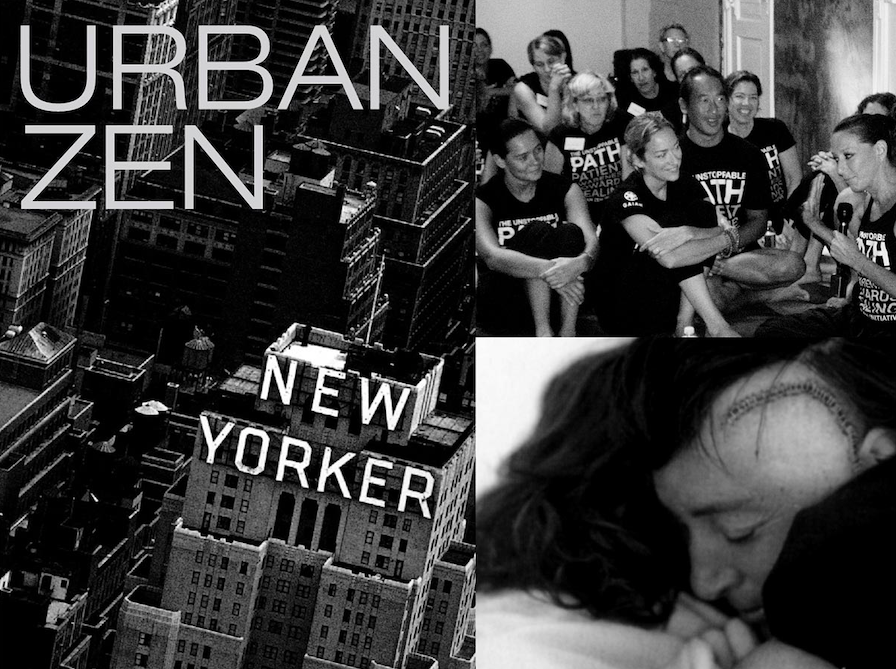
Well+Being Holistic Mental Health
Emotional Health & Wellness Tips From The Therapy Couch And Other Places

Has Your Life Been Hijacked By A Narcissist?
If so, you are likely to have your share of questions about how to identify, manage, escape from, and avoid future entanglements with narcissistic people. As a psychotherapist from New York City, I work with couples and individuals who present with many symptoms of narcissistic abuse or describe patterns of emotional abuse in their primary relationships. It’s not just men, women can also have narcissistic traits or NPD. Oftentimes, a member of a couple will complain that their partner is a narcissist when actually, they also have these traits. It can make the work of therapy challenging. For anyone involved with a narcissist, it's heartbreaking to realize that years, and even decades, have been spent under the rule of a tyrannical parent or partner. Parents, bosses, and partners with narcissistic personality disorder or strong traits have the potential to powerfully and negatively impact your physical and emotional health and wellbeing.
You may be traumatized, numb, and shut down from years of experiences with family members. You may also find yourself repeating this pattern in your current relationships by seeking out narcissistic partners. And so the neurotic dance of repetition compulsion begins. You're now wondering why you are questioning if you are the "crazy and confused" one in your relationship. Reality test: narcissists and psychopaths exhibit crazy-making behaviors. Narcissists project a lot—they come fully loaded with accusations and criticisms. What's crazy-making is that most of what the narcissist claims YOU are doing is exactly what THEY are doing. A seasoned therapist can support your personal growth and help you develop high-level skills for dealing with the narcissist in your life.

No, EMDR Doesn’t Work For Everyone, And Here’s Why
EMDR Therapy, also known as Eye Movement Desensitization and Reprocessing, is a popular form of healing, powerful healing. As people become more comfortable talking about their mental health concerns, we see more people discussing EMDR, especially celebrities. What is EMDR? When something terrible happens to us, it is stored in our brain and nervous system in a different way than our everyday experiences. Memories and sensations show up when we are least expecting it, just like that, your day has been hijacked. EMDR therapy helps to make the memory less disturbing.
Research reveals that EMDR is a powerful therapeutic approach for resolving symptoms of PTSD and for processing trauma and negative experiences. EMDR has been extensively researched and is recognized as effective by organizations such as the American Psychiatric Association and the World Health Organization for treating PTSD. Many individuals experience significant symptom reduction and improvement in their overall well-being after undergoing EMDR therapy.

How To Successfully Navigate Your Open Relationship
You’ve just learned that your neighbors are swingers, which has you really curious, even hot and bothered at the thought. It's completely natural to feel curious or intrigued by the idea of swinging, especially if it's something you've never explored before. However, before diving into the lifestyle, there are indeed some important things to consider What is an alternative relationship? An alternative relationship is any relationship that goes against the norm of monogamy. Consensual non-monogamy, swinging, polyamory, these are all examples of alternative relationships. If you and your partner are interested in opening your relationship, let’s consider what this actually means.
An open relationship can include all forms of non-monogamy. It may include threesomes with both partners present. Sometimes polyamory is part of the mix where partners engage in emotional and sexual relationships. Others may explore their fetish or kink with other people but only have vanilla sex with their partner. Compersion, or feeling joy from your partner's connections with others, can indeed be a significant aspect for some individuals in open relationships. An open relationship can be many things, but it must work for both partners.

Healing Addiction With Counseling
Struggling with addiction or substance abuse/misuse is a common reason people reach out for therapy. Addiction is a disease that affects a person's brain and behavior and typically leads to an inability to control the use of a substance or behavior which always has consequences. When you are addicted, you may continue using the drug, device or behavior despite the harm it causes to your work, relationships and emotional and physical health.
What is addiction and substance abuse? Substance abuse disorder is a complex brain disease that causes you to compulsively seek out and use alcohol, drugs and addictive behaviors despite dangerous and harmful consequences. Substance abuse disorder and addiction causes distorted thoughts, behaviors, and body function. There is a genetic component
Substance abuse and addiction causes symptoms and behaviors including:
Feeling a need or urge to use the substance or engage in the behavior regularly
Needing more and more of the substance or behavior to feel the effects
Time spent ensuring that you have a steady supply of the substance or spending money you don’t have on the substance or behavior
Failing to meet your personal and professional obligations and responsibilities
Experiencing withdrawal symptoms
You feel a worsening of your cognition, with impaired decision-making and memory
You may do things you would not normally do or later regret acquiring the substance

CBT, Coaching & Therapy Techniques For Changing Thoughts & Behaviors
CBT techniques are very helpful tools to be used in therapy, coaching and useful when applied to everyday life situations. What follows are some of the most common CBT techniques that I use with my therapy and coaching clients.
Journaling—This technique gathers information and data about habitual thoughts, emotions and moods. Included in journal entries can be: time of day, the source or trigger, the intensity of the feeling state and the response or action taken. You can add more helpful and adaptive coping responses that might be considered in the future.
Catastrophizing—This tendency is to go immediately to an irrational thought that something is far worse than it actually is. Catastrophizing generally takes two different forms: making a catastrophe out of a current situation or a future situation. Step one is to identify when your are doing this. Next, use your smartphone or journal to write the thoughts down throughout the day and add a corrective statement to counteract the negative belief.

Getting Help For Your High-Functioning Anxiety
“Giving Up My Anxiety Will Negatively Impact My Success.” Is This You?
Like most New Yorkers, your days are busy with work, family and trying to find a way to manage and balance it all. With all that striving and the many tasks to complete, who has time to think about stress reduction or connecting with a therapist to help you manage your anxiety and mood symptoms. You may even wonder who you’d be without your drive—and your anxiety! Take away the anxiety and you’d potentially lose your edge.
You may not even consider your striving to be an anxiety response. As a therapist, we see this a lot. You haven’t crashed yet, and we would like to help you have an even better quality of life. If you haven’t yet crashed, how can you tell if your level of stress and anxiety is normal? Skillful therapy can help you recognize how your stress, anxiety and unconscious beliefs are behind your super-charged drive. If you spend any time on instagram, you’ve likely heard of high-functioning depression, as well as high-functioning anxiety.

Heal Trauma And Reclaim Your Spirit And Your Life
Traumatic experiences change the brain. Some changes are meant to protect from future negative experiences. Just as trauma changes the brain, it is possible to heal the brain. Trauma symptoms that live in the nervous system do not have to hold you in its grip forever. As you continue to think, talk, re-tell and act on your experience(s), you reinforce your attachment to what happened, as well as your brain’s wiring and connection, and this serves to maintain your symptoms as you loop on the upsetting memory and trauma responses. As a New York City based Psychotherapist, I work with individuals who have experienced trauma and would like to heal and improve their lives.
The brain and body is designed to heal. We now know that the brain has an amazing capacity to heal by creating new neural pathways. This process is called neuroplasticity. When people are finally able to regain control over their thoughts, behaviors, responses and lives, the brain's limbic system,

About Holistic Psychotherapy
Holistic Psychotherapy is beneficial for people of all ages, and it’s never too late to begin developing healthier lifestyle habits. No matter your age, mental health issues can interfere with your wellbeing throughout your lifespan. Individuals and couples enter therapy with a unique set of challenges and goals. As a holistic psychotherapist with a private practice in NYC, I specialize in helping older adolescents, adults and couples who experience struggle in their day to day lives. My focus is to help you uncover the root cause of your struggle in psychotherapy, as holistic psychotherapists believe that this is the best path forward to support your mental health recovery. Let me explain the many ways therapy can help make your life better.
Psychotherapy offers the opportunity for an individual to better understand and change patterns of behavior, feelings, and relationships that are getting in the way of your functioning. Psychotherapy offers the opportunity for an individual to understand and change patterns of behavior, feelings, and relationships that are getting in the way of higher-functioning. Good therapy can enable you to have richer, fuller and more meaningful life experiences.
What Does Holistic Psychotherapy Do?

Mental Health Challenges For Women At Perimenopause & Menopause
I just finished reading “Women Have Been Mislead About Menopause” in the New York Times. As a licensed psychotherapist with a private practice in New York City, this is one of the best articles that I have read about menopause in a very long time. Because as a psychotherapist, I see women who are menopausal, or soon to be, suffering from impactful mental health symptoms related to these hormonal changes. Of course women have other life events that may coexist with any hormonal changes, and that’s why it’s important to let a professional help you sort things out, and this can inform your counseling and wellness plan. Because, when your hormones are all over the place, unbalanced or deficient, it also makes it harder to cope with the usual demands of life. I have had my own personal experience with hormonal changes and failing ovaries, and my own ongoing journey has opened my eyes and informed my psychotherapy practice.
Did I learn about mental health and hormones in graduate school? Absolutely not. And this means that patients seeking counseling help are likely not receiving education and comprehensive care from their psychiatrists, psychologists and other mental health professionals who should be knowledgable about the impact of hormonal changes and mental health.
According to the article, about 85 percent of women experience menopausal symptoms. Rebecca Thurston, a professor of psychiatry at the University of Pittsburgh who studies menopause, believes that, in general, “menopausal women have been underserved — an oversight that she considers one of the great blind spots of medicine. It suggests that we have a high cultural tolerance for women’s suffering,” Thurston says. “It’s not regarded as important. Women’s symptoms are often minimized or dismissed; they are told it’s “just a natural part of aging” and they will have to learn to “deal with it.”

Finding Balance With DBT’s Wise Mind
Wise Mind is a highly-effective core skill used Dialectical Behavior Therapy (DBT). According to DBT, we have three states of mind: reasonable mind, emotion mind, and wise mind. Wise mind is thought of as the balance or integration of the reasonable and the emotion mind. Reasonable mind is the rational part of you, just-the-facts, thinking state of mind where you are ruled by logic. When you find yourself governed by emotion mind, your emotions are in control. You tend to be led by strong feelings and desires. Both states have their value and provide important information, but it’s easy to become stuck in one state of mind, being either cut-off from emotions or controlled by emotions. That is where wise mind becomes an important ally in your goal to have a more balanced life and state of mind.
In dialectical behavior therapy (DBT), the goal is to have wise mind available to you in situations where you are pulled to an extreme state or polarization. Wise mind is the integration or intersection of the reasonable mind and the emotion mind. Put another way, wise mind is your intuition or inner wisdom. It’s the state where you are wisely able to balance between the cool detachment of reason, and the wild current of emotion mind. Incorporating this wise mind DBT practice allows you to find balance between inaction and the active state of doing. Practicing wise mind allows you to engage in your life with awareness, with the goal of mindful presence.

The Healing Power Of Relational Psychotherapy
We are all born with unique attributes and qualities. If we are fortunate enough to have optimal circumstances and nurturance along the way, we develop into secure adults. Adults with secure attachment and relational capacity are able to have meaningful experiences and relationships. They feel safe in the world and with others. Secure individuals are free to thrive.
As it turns out, most of us have had more adversity than is helpful. While some adversity makes us strong (we develop skill and resilience), too much adversity threatens to overwhelm us. It interferes with growth, because we are unable to feel safe, explore the world and develop adaptive coping strategies. Reduced capacity to cope naturally leads to anxiety, depression, addictions, compulsions, eating disorders and other troubling symptoms. When symptoms and poor coping takes over, our ability to establish healthy relationships, maintain those relationships and function well in the world is diminished. Sometimes we are fortunate enough to make an important connection to begin the healing process. The therapeutic relationship is one way to begin to heal.
Mental health seems to be experiencing a time of less stigma and greater awareness. People seem to feel safe sharing their mental health struggles on social media. The pandemic certainly led to an increase in loneliness, isolation, anxiety and terror, which led many to seek therapy and counseling, sometimes for the first time. This exploration to find a therapist also led to a great deal of confusion. With so many potential therapists and different therapeutic orientations, the big question becomes, “what’s the right type of therapy for me?”
Many want a quick fix as they enter therapy. Of course, short-term models that offer skill building and concrete interventions have their place. The problem with this strategy is that it rarely moves the needle when it comes to true healing.

Therapy And Support For Deeply-Feeling People
For as long as you can remember, others have labeled you as “too shy” or “too sensitive.” It sure doesn’t feel good to hear this, but it does describe your reality on the daily. Thinking about it, you’ve always felt alone, or very different. You may be more reactive than most to the moods of others, criticism can feel especially hostile, external stimuli and energy drains you. These are just a few examples of what it’s like as a Highly-Sensitive Person (HSP), also known as deep-feelers, neurodivergent individuals and Sensory-Processing Sensitivity (SPS). Navigating a noisy, demanding world as a highly-sensitive person can be disabling for many especially as you attempt to accommodate and manage the accompanying anxiety and depression. But remember, sensitive folks have great gifts. They tend to experience high levels of perceptivity and intuition, empathy and super-attunement, and even high levels of creativity. Sometimes, your exquisite sensitivity feels like a gift; it can also feel like a curse. Please know that you are not alone and you do not need to suffer in silence.

Mental Health Recovery Is Not Linear
Mental health recovery and trauma recovery is not a linear process, and thinking that it should be only creates more shame and defeat. As you walk the path of healing, It’s important to remember that…
the grief process is not linear
mental health recovery is not linear
addiction recovery is not linear
healing a broken heart is not linear
trauma processing is not linear
learning to set healthy boundaries is not linear
self-growth in therapy and counseling is not linear
Be kind to YOU and offer yourself compassion and grace every time you stumble or fall. This is how you heal.

Calm Discussions, Cool Heads
Couples or those working with others in partnerships or other kinds of relationship dyads often need skills and tips on how to enter a discussion, and the best strategies for keeping it calm, and ultimately successful. Beginning an important discussion can be fraught with conflict, apprehension and fear. What follows are some simple tips to keep the conversation constructive. While the goal might be to make a point, have your point taken seriously, right a wrong or solve a problem, many conversations devolve into screaming matches. What follows are some simple communication pointers to keep important discussions from spiraling out of control.

Reclaim Your Identity By Healing Your Trauma
We continue to learn about the impact of trauma, and what we do know is that trauma changes the brain. We also know that the brain has tremendous capacity to heal and re-wire. As you continue to think, talk, re-tell and act on your experience(s), you reinforce your attachment to what happened, which exacerbates your symptoms and you loop on the upsetting memory and trauma responses. The goal of successful trauma healing is to free your nervous system from the patterns of trauma symptoms and regain freedom so you can move forward with your life and dreams.
The body is designed to heal. We now know that the brain has an amazing capacity to heal by creating new neural pathways. This process is called neuroplasticity. When people are finally able to regain control over their thoughts, behaviors, responses and lives, the brain's limbic system, parasympathetic and vagus nerve system can normalize.

DBT Skills: Practice Radical Acceptance
Develop Radical Acceptance From Within...
This week, as we reviewed distress tolerance and handling difficult emotions in my eating disorder seminar, I was reminded of the concept of "radical acceptance."
What Does Radical Acceptance Look Like?
1. Learning to develop complete acceptance that comes from within.
2. Understand that painful emotions are a part of life—we all have them, they are normal and to be accepted.
3. Stop fighting (both emotionally and behaviorally). Learn to accept difficult emotions as a normal part of being human.

Urban Zen Center: Dr. Mark Hyman Speaks On Diabesity
Urban Zen was delighted to hear that Mark Hyman, MD considers the Urban Zen Center to be his second home, and we were thrilled to welcome him back to the studio. On October 30, 2010, the center was filled with guests eager to learn more about his approach to living a disease free life. The day long workshop was dedicated to the topic of “Diabesity” which is, as Dr. Hyman describes, an epidemic health condition that is metabolic in nature and ranges from mild blood sugar imbalance to full-blown diabetes. It is such a health concern that military leaders have labeled it a “threat to national security.” Workshop guests were surprised to learn that one out of every three volunteers in the military is obese.
The statistics are even more sobering in the general population with an alarming obesity rate of nearly three out of four Americans. Dr. Hyman added that “our children may be the first generation that will not outlive their parents.” What would it take to turn things around so that our kids can grow old? Dr. Hyman’s sensible approach to health reminded us what we probably already knew—that lifestyle treatments and a whole systems approach to chronic disease IS the cure. So, if you think you can’t reverse the problem you are wrong. The trouble with conventional medicine is that we treat the symptoms, not the root cause according to Dr. Hyman.

